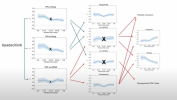Utsikt
Senior Member (Voting Rights)
As someone who had the same question and had to Google: independent or not influenced by existing ideas or assumptions
Thank you!Literally, it means in a direction that has nothing in common with what has been indicated before - at right angles. It generates a cotangent of ZERO.
So it’s orthagonal in relation to previous ideas, not the data. That’s what was throwing me off.

